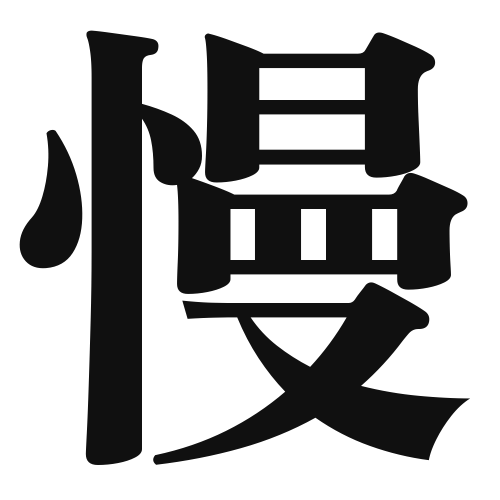1. Overview of Meaning
The kanji “慢” (man) means “slow” or “sluggish.” It conveys a sense of being unhurried or lacking urgency, often associated with a relaxed or laid-back attitude.
2. Formation and Radical
The kanji “慢” is a compound character (会意文字) that combines two elements: the radical “忄” (heart) and the character “慢” itself, which suggests a state of mind or attitude. The radical indicates that the meaning is related to emotions or feelings.
3. Examples of Usage
Common words and phrases that include “慢” are:
- 慢性 (mansei) – chronic
- 慢心 (manshin) – complacency or arrogance
Example sentences in daily conversation:
- 彼はいつも慢なペースで仕事をします。
(He always works at a slow pace.) - 慢心は成功の敵です。
(Complacency is the enemy of success.)
4. Synonyms and Antonyms
Similar kanji with related meanings include:
- 遅 (chi) – slow, but often used in the context of being late.
- 鈍 (don) – dull or slow, often referring to a lack of sharpness or quickness.
Antonyms include:
- 速 (soku) – fast or quick.
- 急 (kyuu) – urgent or hurried.
5. Cultural and Historical Background
The kanji “慢” is often associated with Japanese culture’s appreciation for a slower, more mindful way of living. It reflects the idea of taking one’s time and enjoying the moment, which is prevalent in practices like tea ceremonies and traditional arts.
Proverbs and idioms related to “慢” include:
- 急がば回れ (Isogaba maware) – “If you hurry, take the longer way,” which emphasizes the value of patience.
